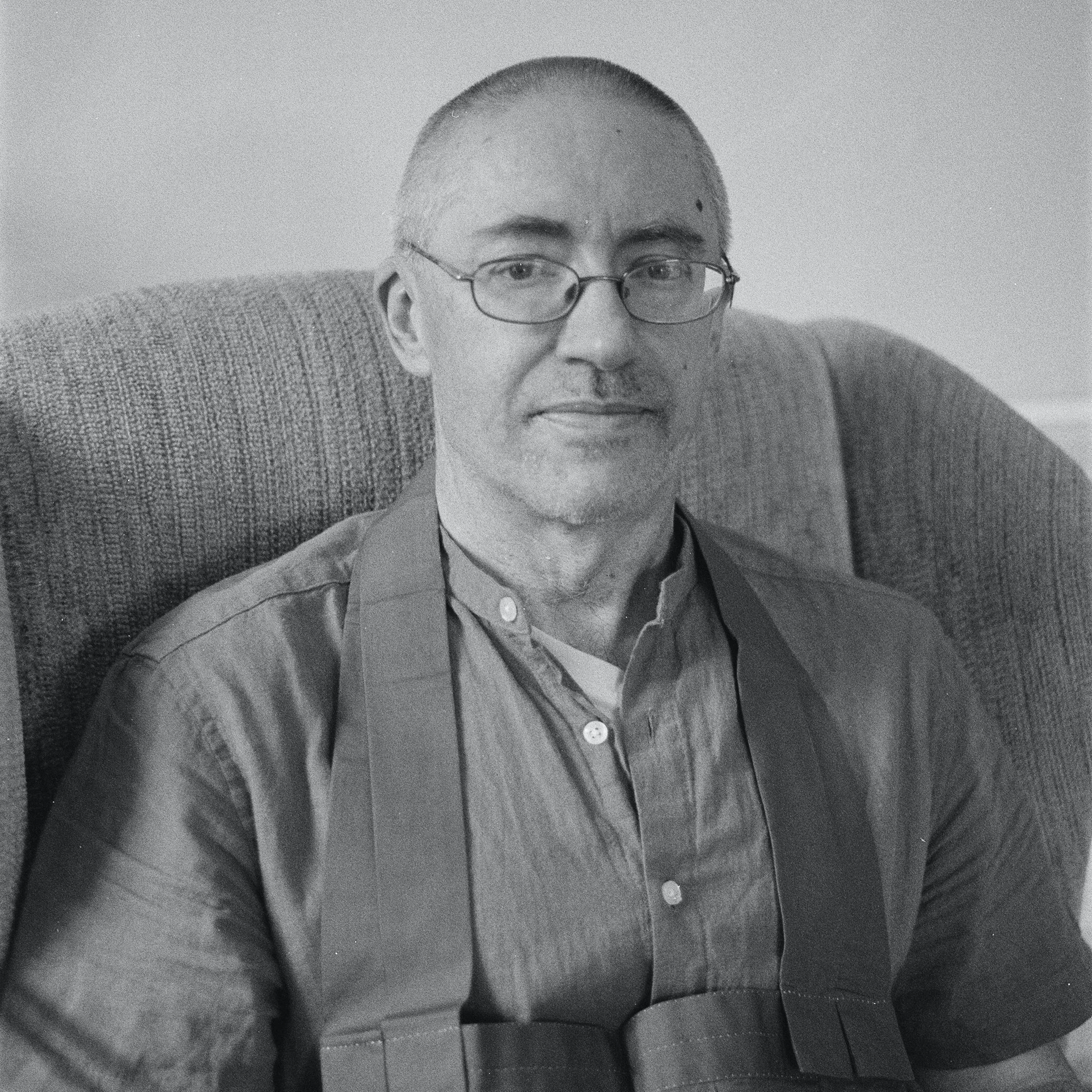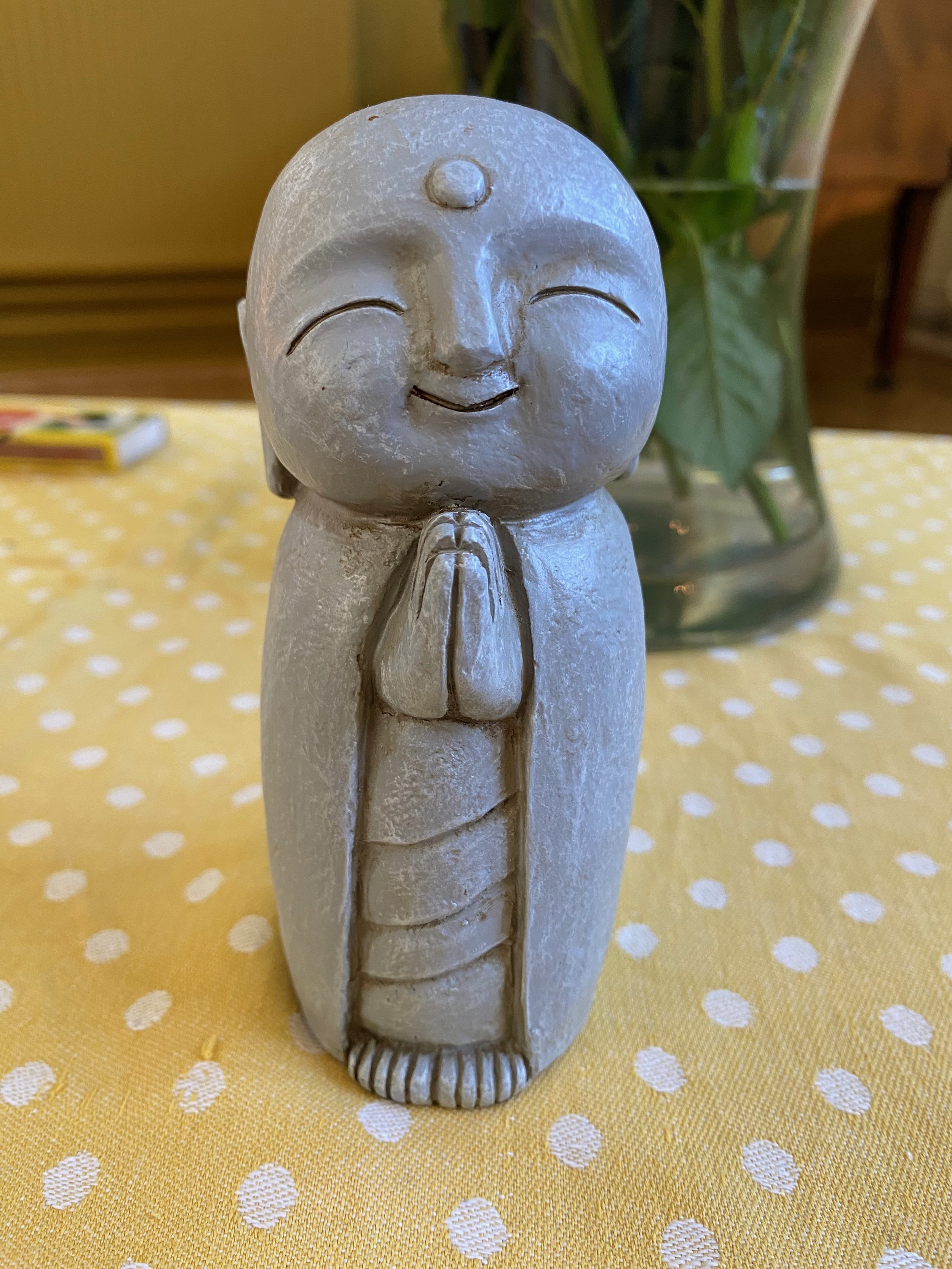Death, dying and funerals in Zen Buddhism
As part of my Foundation level End of Life Doula training, we were given the task to choose a world religion or culture to research, and create a presentation about death, dying and funerals in that tradition which we brought back to the group for the second half of the training. For the research, we were encouraged to speak directly to practitioners of the chosen faith or culture, rather than relying on Wikipedia or Google, to see if we could gain first hand accounts of the beleifs and practices. I chose Zen because although it is not my own spiritual path, I have great respect for the tradition, plus I knew that I could speak to some really experienced Zen practitioners and (hopefully) interview them within the timeframe given for the task.
To my great delight, three ordained Zen priests agreed to be interviewed. I came up with the following questions to ask each of them:
How is death understood within Zen?
Tell me about the rites and rituals that are performed around death and dying.
What is a zen funeral like?
Is death and dying within Zen Buddhism different in the UK compared to how things are done in Japan?
How might zen practice and belief impact on grief and grieving?
Each of the conversations ranged quite a way beyond these initial starting points and turned into really fascinating conversations - I am so glad I recorded them as there was so much of interest.
A little about the interviewees:
Ingen is a Zen priest living in Ireland. He has been leading Zen retreats for twenty years, and teaches in Ireland, California, Moscow and the U.K. Ingen begins his interview with an exploration of the nature of time and how that then influences our understanding of the nature of death. Ingen has been involved in funerals both in the USA and in the UK and speaks about how Zen practice adapts to its surroundings and how the experience of grief might play out for someone who practices zen.
Daizan is the founder of the Zenways which is based in London. Daizan is the first Englishman to become a Zen master in the Rinzai tradition, and he also has permission to teach in the Soto Zen lineage. In the interview, Daizan speaks of Zen funerals he has witnessed in Japan and of the ways the ancestors are traditionally honoured. Towards the end of the interview Daizan offers his understanding of how being truly present to someone who is dying can be profoundly helpful to them.
Rebecca is a Zen priest based in Hebden Bridge. She is the first Zen practitioner in her lineage to be ordained in the UK. Rebecca is one of the founding members of Hebden Bridge Zen Group, a Sangha-led group of zen practitioners who offer regular meditation, ceremony and retreats. Rebecca is also a mental health nurse and a hospital chaplain. Rebecca speaks about the hope and inspiration that is offered by the zen buddhist teaching of impermanence, and how sitting zazen brings the teachings of constant transformation that is life and death into every moment. In an extended part of the interview Rebecca speaks about Jizo, the bodhisatva of journeying, grief and protector of children who have died.
Happy listening!
Disclaimer - I learned during this process that interviewing is a skill set that I have yet to master! Also, to let you know, the interview with Daizan was online, the others were in person, and this is really the first time I’ve ever recorded interviews with people so expect a bit of scratchy tech.
There is a little bit more about my presentaion and the Doula training below for those who are interested.
The presentation….
It was impossible to condense these three fascinating conversations into a 10 minute presentation so I didn’t even try. I wanted to bring a real flavour of Zen to the presentation and wanted it to be not just words and power point but to find a more embodied approach. To begin with, I spoke off the cuff about each interview and recalled anything that had particularly struck me. I had brought along a beautiful little Jizo buddha which Rebecca had kindly lent me for the presentation and showed this to the group. For the final part of the presentation I offered a traditional chant which Rebecca taught me, using the Mokugyo “Wooden Fish” instrument kindly loaned by Hebden Bridge Zen Group for the day. The chant is entitled Enmei Jukku Kannon Gyo and is in praise of Kanzeon, the Japanese Buddha of Compassion. This is one of the traditional Japanese chants which may be performed at Ordination ceremonies and at Funerals. I offered the chant for the benefit of all beings, as is the Zen tradition.
The morning of the presentations was one of my absolute favourite parts of the doula course. I just loved it - we had presentations on everything from Sikhism to Inuit to Mexican tribal traditions to Paganism… such beautiful traditions, such diversity of humanity’s expression of the honouring of love and loss and the great cycle of life. The End of Life Doula Foundation course is offered by Living Well Dying Well. I’d highly recommend it, please feel free to contact me if you’d like any more info.





